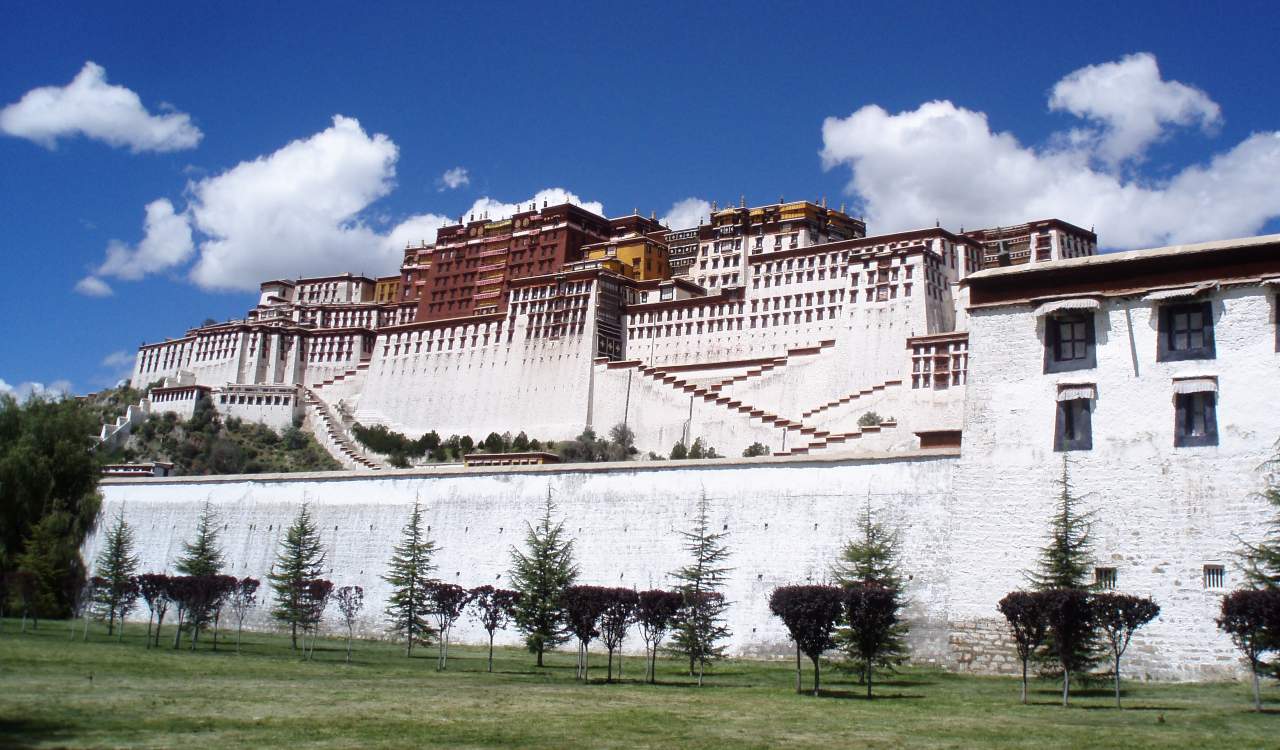
Fabled Lhasa Tibet
Himalayan Kingdom on the Roof of the World
Known as the "Land of the Gods", the capital city of Lhasa sits right in the heart of the Tibet autonomous region in China, deep in a valley next to the Lhasa River. Shimmering like a pearl on the snow-covered plateaus, this city is the political, cultural and transportation hub of the Tibetan Autonomous Region.
Full of temples and monasteries, Lhasa is a timeless destination with a truly magical feel, and it has been home to the Dalai Lamas and the final goal of many a devout pilgrimage throughout the centuries. A wide variety of people call this ancient city home, including those of Tibetan, Han, Hui and Menba nationalities.
Even with the modern influence of Chinese development coming into play in recent years in Lhasa, this 1,300 year old city still holds many ancient wonders for the intrepid traveller to discover.
An Impressive Palace
Throughout the history of this city, all visitors have been greeted with the breath-taking sight of the vast fortress of Potala Palace soaring over Lhasa. Even today, this beautiful building manages to produce goose bumps as travelers witness it for the first time.
The Potala Palace was constructed in 637 by the king of Tibet as a gift for his bride, the lovely Princess Wen Cheng, who was of the Tang Dynasty of China. The king also used the palace as a meditation retreat, and later the site was used as the main residence of the Dalai Lama. It was used for this purpose until the 14th Dalai Lama fled to Dharamsala in India to escape a failed uprising and invasion in 1959.
Now the beautiful stone building of Potala Palace is a museum, where visitors can explore its intriguing treasures and discover more about the fascinating history of Lhasa.
Jokhang Temple
Lhasa is home to the most sacred and important temple in all of Tibet, the Jokhang Temple. An official UNESCO World Heritage Site, this temple is the spiritual center of Lhasa. It was founded in the 7th century and is an impressive four-story construction with beautiful gilded bronze tiles covering its roof. The interior, filled with the scent of votive candles and incense, is a dark and mysterious labyrinth of chapels, each dedicated to a different god or bodhisattvas.
The fascinating and atmospheric Jokhang temple is a must-see during your time in Lhasa.
Exciting Festival Culture
Tibetan culture is alive with traditional music and dance, and the Tibetan people celebrate many festivals throughout the year, many of them related to the ancient celebrations of Buddhism.
The Tibetan New Year starts off the new calendar with the loud bang of fireworks and the sound of people dancing and singing while spinning together in a circle accompanied by guitars, cymbals and gongs. The festival lasts for several days, and includes offerings of food to images of Buddha and many visits with friends and family.
Another amazing event is the Butter Lamp Festival, which falls on the 15th day of the first Tibetan month. Locals will release thousands of lamps into the night air, creating the visual effect that the shining stars are floating down from the sky.
Tibetan celebrations are poetic and beautiful, and have their roots in long-standing tradition.
Tasty Traditional Treats
On one of our bicycle treks through Lhasa, you will get a chance to savour some of the unique flavors of traditional Tibetan food. The flavors of the dishes enjoyed here are fresh, light and tender. One of the most important ingredients in Tibetan cuisine is barley, and the dough called "tsampa" made from barley flour is a staple food of the region. It is a versatile food which can be rolled into noodles or made into delicious steamed dumplings.
Common meat dishes include yak, goat, and mutton, and the meat is usually dried or cooked in a rich and spicy stew with potatoes and flavored with mustard seed which is another thriving crop. Yoghurt, butter and cheese made from yak's milk are another Tibetan delicacy.
Because of the Chinese influence in Lhasa, the food here has a Chinese twist as well with the flavors of Sichuan food combined in the cuisine. While you are exploring Lhasa, be sure to also have a taste of the mild and sweet Tibetan barley beer known as Chang.


 PEDALERS
PEDALERS